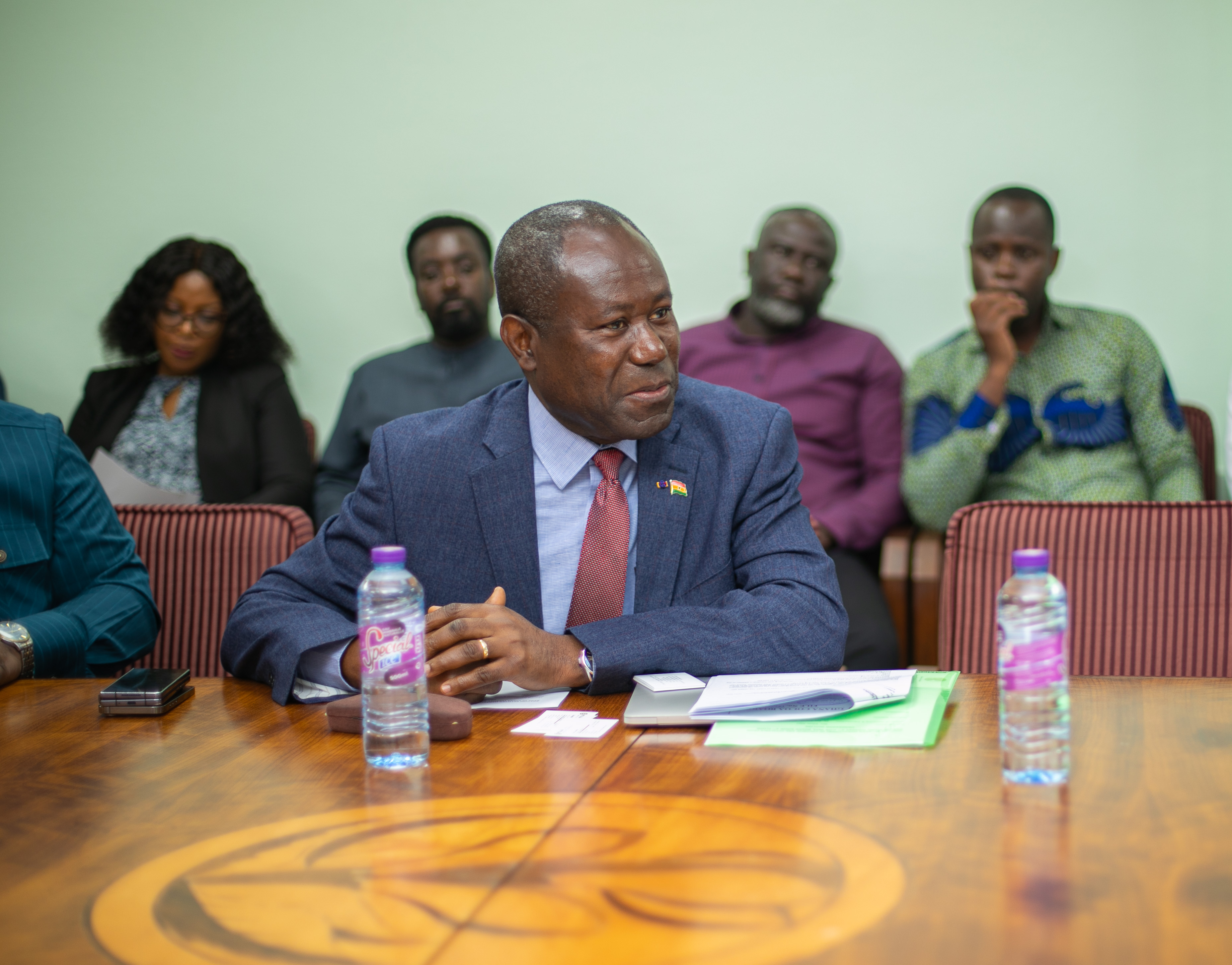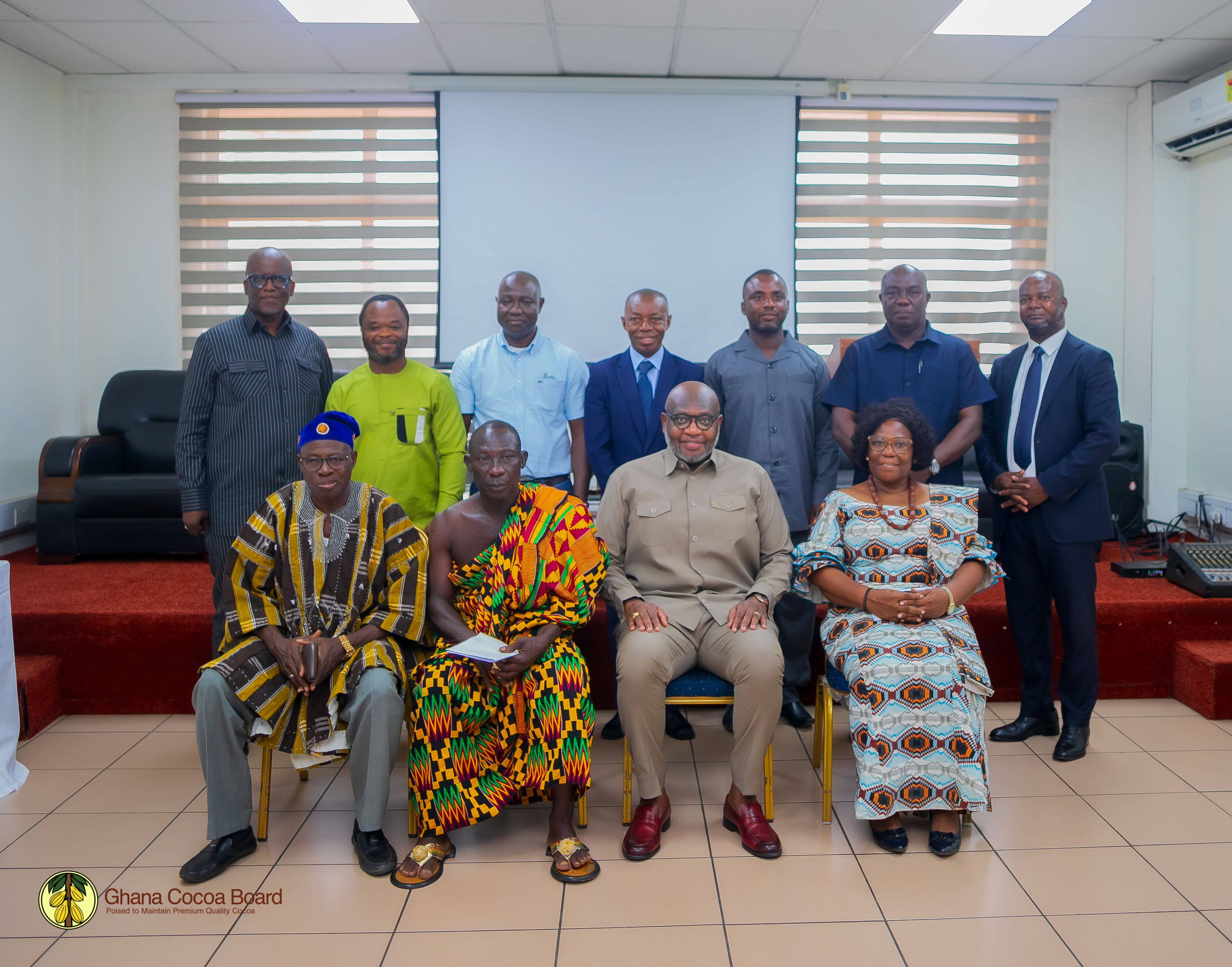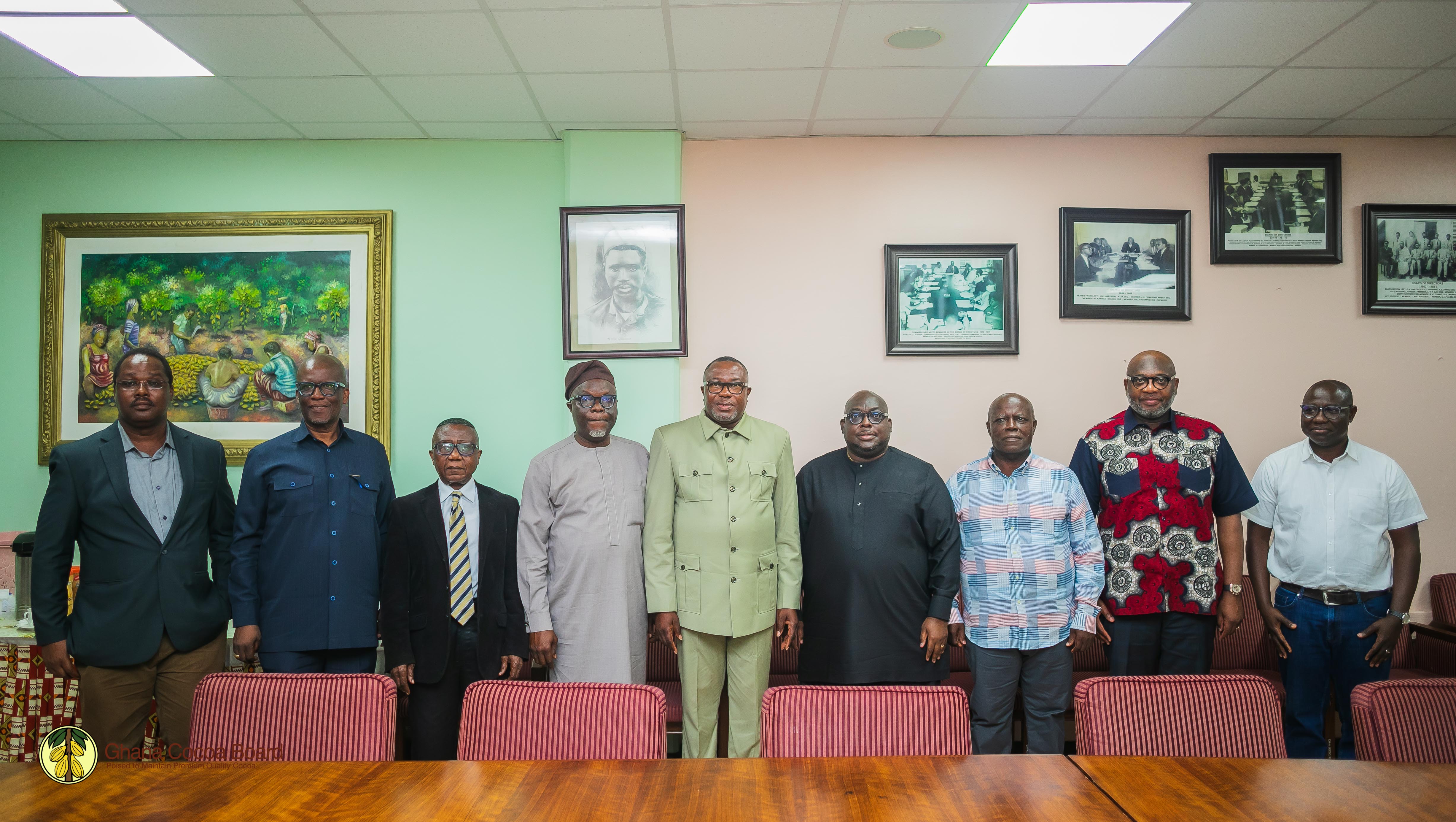EL NIÑO, SMUGGLING, OTHER FACTORS CAUSED DECLINE IN PRODUCTION – COCOBOD BOSS

Date: 11th June 2024
The Chief Executive of Ghana Cocoa Board (COCOBOD), Hon Joseph Boahen Aidoo, has attributed the decline in cocoa production for the 2023/2024 crop season to the adverse effects of El Niño among other factors. He explained that this climate phenomenon has significantly impacted cocoa supply globally, resulting in substantial losses for producers.
Hon. Boahen Aidoo made these remarks during a meeting with a three-member delegation from the London branch of the Bank of China. The delegation visited COCOBOD to discuss the challenges affecting global cocoa production and explore potential strategies for recovery.
“We all know that we are not in normal times, the presence of El Nino has affected our production not just in Africa but Europe also,” he said.
Hon. Aidoo also highlighted the issue of cocoa smuggling, which has further hampered efforts to meet the production target for the 2023/2024 crop year.
“Cocoa smuggling cannot be left out in this equation as it has also affected us greatly in achieving our target, currently our production is around 500mt,” he added.
Expressing concern over the poor performance in the first quarter of the year, Hon. Aidoo noted that there was not much cocoa to account for.
“2023/2024 syndication was signed in January 2024, we announced the producer price in September 2023, and by the time the money came in a lot of our cocoa had been smuggled out,” he lamented.
Despite these challenges, the Chief Executive expressed optimism about the future, citing the rehabilitation of cocoa farms as a positive development that will help increase production levels in the coming years, particularly in the Western North Region.
“We expect to see a significant increase in production from the rehabilitated farms. We shouldn’t get anything less than 800,000 metric tons,” he projected.
The Chief Executive was, however, optimistic that the cocoa farms that have been rehabilitated will significantly help to increase production levels in the coming years, praising some positive indicators from the Western North Region.
“We are expecting to increase production massively in the coming years from the rehabilitated farms, we shouldn’t get anything less than 800mt,” he opined.
Addressing the issue of illegal mining (galamsey), Hon. Aidoo emphasised that it is a national issue that COCOBOD cannot tackle alone. He revealed that COCOBOD is considering legislation to protect cocoa trees from destruction.
“COCOBOD has set up a galamsey desk that is fighting for affected cocoa farmers and their farms for proper compensation and jail term for companies destroying cocoa farms,” he added.
Mr. Glen Unsworth, who led the delegation from the Bank of China, urged COCOBOD's management to prioritise the well-being of cocoa farmers. He assured that the Bank of China is committed to ensuring that farmers receive prompt payment for their produce.
“There wouldn’t be any delay tactics on this year’s syndication, we will be prompt in releasing all payment so that farmers can get paid when they bring their produce”, he assured.
Mr. Unsworth further emphasized that sustaining the cocoa sector is a shared responsibility and reaffirmed the Bank of China’s commitment to contributing to the sector's growth.
The Bank of China has been a key stakeholder in supporting COCOBOD through its pre-export receivables-backed trade finance facility for cocoa purchases. They remain committed to supporting the upcoming syndication process.
Other News / Articles you might be interested in.

COCOBOD HONOURS 2024 NATIONAL BEST COCOA FARMERS IN LONDON
Ghana Cocoa Board (COCOBOD) has honoured the nation’s 2024 National Best Cocoa Farmers ...
Read More
COCOBOD INAUGURATES MANAGEMENT COMMITTEES TO ENHANCE INSTITUTIONAL EFFICIENCY
Ghana Cocoa Board (COCOBOD) has officially inaugurated management committees of four of its ...
Read More
COCOBOD INAUGURATES THREE KEY SUB-COMMITTEES OF THE BOARD TO DRIVE FINANCIAL DISCIPLINE AND EDUCATIONAL EMPOWERMENT IN THE COCOA SECTOR
The Chairman of the Board of Directors of Ghana Cocoa Board (COCOBOD), Dr. ...
Read More